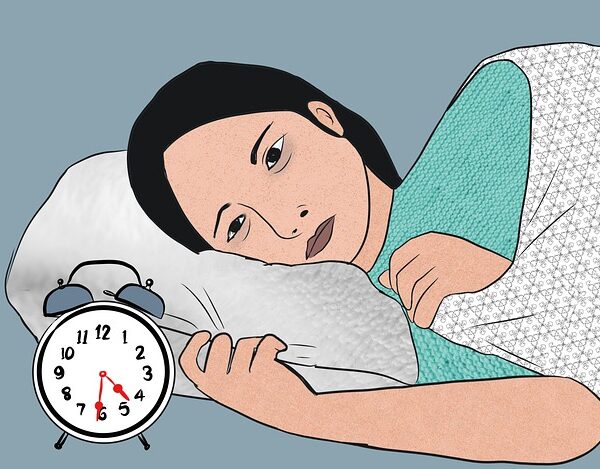You might think the placebo effect is just a trick of the mind, but research shows it can genuinely influence your physical health. When you believe a treatment will work, your body can respond in ways that mimic actual medical interventions. This phenomenon raises intriguing questions about the connection between belief, expectation, and healing. What if you have more control over your health than you realize? Exploring the mechanisms at play could reveal surprising insights that challenge conventional thinking about treatment and recovery.
Understanding the Placebo Effect
 What if the mind could influence the body’s healing process? The placebo effect demonstrates that patients can experience real physiological changes simply by believing they’re receiving treatment, despite not receiving an active medical intervention. This phenomenon raises significant questions about the role of cognitive biases in shaping your perception of health and treatment outcomes.
What if the mind could influence the body’s healing process? The placebo effect demonstrates that patients can experience real physiological changes simply by believing they’re receiving treatment, despite not receiving an active medical intervention. This phenomenon raises significant questions about the role of cognitive biases in shaping your perception of health and treatment outcomes.
When you believe a treatment will work, your mind may activate specific neurobiological pathways, releasing neurotransmitters like endorphins and dopamine, which can alleviate pain and enhance mood. Research shows that these pathways are influenced by your expectations and beliefs, illustrating how intertwined your mind and body truly are.
For instance, if you think a pill will relieve your headache, your brain may create a response that mimics the effects of real medication. This highlights the power of positive thinking and the significance of mental state in recovery.
However, cognitive biases can also distort your perception, leading you to overestimate the effectiveness of a treatment based solely on belief. Understanding this dynamic is essential for both patients and healthcare providers, as it opens new avenues for enhancing treatment efficacy through mindful engagement and expectation management.
Historical Background of Placebo Research
The exploration of the placebo effect dates back centuries, with early references found in ancient texts where healers often attributed healing powers to rituals and the belief in treatment rather than the treatment itself.
Historical milestones in placebo research began to take shape in the 18th century, when physicians like John Haygarth conducted early experiments using ‘dummy’ treatments to demonstrate the power of suggestion. His work highlighted how patients could experience genuine relief from symptoms when they believed they were receiving effective treatment, regardless of the actual substance administered.
As the 20th century progressed, the scientific community began to rigorously investigate this phenomenon. In the 1950s, researchers such as Henry K. Beecher published significant studies demonstrating that placebos could produce measurable effects in clinical settings, which challenged the purely biomedical model of treatment.
These early experiments laid the groundwork for a more nuanced understanding of the mind-body connection in healing processes. Today, the placebo effect is recognized not just as a mere curiosity but as a crucial area of research that continues to shape therapeutic practices and the understanding of human psychology in medicine.
How Placebos Work in Medicine
Placebos work in medicine by leveraging the brain’s ability to trigger physiological responses based on patient expectations and beliefs about treatment. This phenomenon is rooted in various placebo mechanisms, which highlight how your mind can influence your body’s healing processes.
Research shows that when you believe a treatment will work, your brain releases neurotransmitters and hormones that can help alleviate symptoms, demonstrating a profound mind-body connection.
Clinical trials have illustrated that placebos can activate brain regions responsible for pain relief and emotional regulation. For instance, studies using functional MRI scans have shown increased activity in areas associated with pain perception when individuals anticipate relief from a placebo treatment. Moreover, these effects can be so significant that they sometimes rival those of actual medications.
Additionally, the context in which a placebo is administered—such as the setting or the provider’s demeanor—can enhance its effectiveness. This suggests that understanding the underlying placebo mechanisms can be essential for optimizing patient care.
The Role of Patient Expectation
Patient expectation plays a significant role in determining the effectiveness of placebo treatments, as individuals who anticipate positive outcomes are more likely to experience actual improvements in their symptoms. Research indicates that when you believe a treatment will work, your brain can trigger physiological changes that contribute to healing. This phenomenon underscores the importance of patient beliefs in health outcomes.
Expectation management becomes vital in clinical settings. By fostering a positive outlook, healthcare providers can enhance the potential benefits of treatment, whether it’s a placebo or an active medication. For instance, studies have shown that patients who receive clear, optimistic communication about their treatment tend to report higher satisfaction and better symptom relief. Conversely, negative expectations can lead to diminished effects, highlighting that how you perceive your treatment can directly influence its efficacy.
Furthermore, understanding the interplay between expectation and beliefs can help tailor interventions that maximize therapeutic outcomes. By addressing these psychological aspects, you not only improve the likelihood of positive results but also empower yourself in the healing process.
Therefore, managing expectations effectively is essential in harnessing the full potential of placebo treatments.
Psychological Mechanisms Behind Healing
Several psychological mechanisms contribute to healing, including conditioning, expectation, and the brain’s ability to modulate pain perception. The mind-body connection plays a significant role, as your thoughts and emotions can directly influence physical health. Behavioral conditioning, for instance, helps establish associations between certain stimuli and healing outcomes, reinforcing positive expectations.
Your belief systems and cognitive biases can also shape how you respond to treatments. If you firmly believe in the efficacy of a therapy, you’re likely to experience improved emotional wellbeing and psychological resilience. Neurobiological factors, such as the release of endorphins and neurotransmitters, further illustrate how mental states can affect bodily processes.
Moreover, stress response mechanisms can complicate the healing process. When you experience stress, it can hinder recovery; conversely, maintaining a positive outlook can mitigate stress and promote healing. By understanding these psychological mechanisms, you can harness the power of your mind to aid in recovery.
Engaging in practices that enhance emotional wellbeing and resilience can create a more conducive environment for healing, illustrating the profound influence of your mental state on physical health.
The Impact of Doctor-Patient Relationships
The quality of doctor-patient relationships greatly influences treatment outcomes and can enhance the placebo effect by fostering trust and open communication. When you feel a strong therapeutic alliance with your doctor, it can considerably impact your perception of treatment and health outcomes.
Research shows that doctor empathy plays a vital role in this dynamic. When physicians demonstrate genuine concern and understanding, patients often report feeling more comfortable and engaged in the healing process.
A positive doctor-patient relationship encourages patients to adhere to treatment plans and openly discuss their symptoms, which can lead to better health outcomes. Studies indicate that patients who perceive their doctors as empathetic are more likely to experience beneficial effects from placebo treatments. This is likely due to the heightened expectations of healing when patients trust their doctors.
Moreover, effective communication can alleviate anxiety and improve overall well-being, further amplifying the placebo effect. Fundamentally, the strength of your relationship with your doctor can serve as a catalyst for healing, demonstrating that the mind’s role in health is just as essential as the physical treatments prescribed.
Placebo Effect in Clinical Trials
In clinical trials, the placebo effect can greatly skew the results, often making it challenging to determine the true efficacy of a new treatment. When you participate in a trial, you might receive either the active treatment or a placebo, which is designed to mimic the treatment without therapeutic effects. This setup necessitates careful placebo comparisons to gauge how much of the observed effect is due to the treatment itself versus psychological factors.
Trial methodologies play an important role in addressing the placebo effect. Randomized controlled trials (RCTs) are considered the gold standard, as they help minimize bias and guarantee that any differences in outcomes can be directly attributed to the treatment under investigation. However, even in RCTs, the placebo effect can lead to significant improvements in the placebo group, complicating analysis.
Researchers often use blinding techniques to reduce expectations and increase the validity of the findings. This way, you won’t know whether you received the active treatment or the placebo, which can help mitigate the psychological influences that may arise.
Ultimately, understanding the placebo effect is essential for interpreting clinical trial results and advancing medical knowledge.
Ethical Considerations in Placebo Use
Ethical dilemmas arise when considering the use of placebos in clinical trials, particularly regarding informed consent and the potential deception involved in withholding effective treatments. When you participate in a trial, you expect transparency about what you’re receiving. If researchers use placebos without fully informing you that you’re not getting an effective treatment, they compromise the ethical principle of informed consent. This practice raises significant ethical implications, as it can lead to distrust in the medical community and hinder future clinical research.
Moreover, the use of placebos can create a moral quandary for healthcare providers. You might question whether it’s justifiable to allow a patient to endure a placebo while a proven treatment exists. Such situations could lead to feelings of betrayal if a patient later discovers they were misled.
On the other hand, proponents argue that placebos can be vital for scientific advancement, helping to isolate the effects of new treatments. However, balancing the pursuit of knowledge with ethical responsibilities remains a complex challenge.
Ultimately, maintaining ethical integrity in research is essential for fostering trust and ensuring that participant welfare is prioritized.
Case Studies and Real-Life Examples
Exploring real-life examples of the placebo effect can shed light on the complexities and implications of its use in clinical settings.
One compelling case is the research conducted on patients with chronic pain. In a double-blind study, participants receiving a placebo reported significant pain relief, often attributing their improvement to the treatment, which highlights the power of the mind in managing perceptions of pain.
Another notable example involves patients with depression. Anecdotal evidence suggests that individuals who believed they were receiving effective medication often experienced mood improvements, even when the treatment was a placebo. Personal testimonies from these individuals illustrate how expectations can influence emotional states and overall well-being.
Furthermore, studies on surgical procedures, such as knee surgeries, have revealed that patients who underwent sham surgeries experienced similar outcomes to those who’d actual operations. This evidence emphasizes the role of psychological factors in healing processes.
These case studies underscore the need for further research to understand the mechanisms behind the placebo effect. They also raise critical questions about how we integrate this phenomenon into therapeutic practices, balancing ethical considerations with potential benefits for patients.
Harnessing the Placebo Effect
Harnessing the placebo effect involves leveraging patients’ expectations and beliefs to enhance treatment outcomes, particularly in managing conditions like pain and depression. Research shows that the mind-body connection plays an essential role in this process. When you believe a treatment will work, your brain can trigger physiological responses that actually improve your condition.
Incorporating therapeutic rituals can further amplify these effects. For instance, the way a treatment is presented—such as the setting, the demeanor of the healthcare provider, and even the design of the medication—can greatly influence your perception of its efficacy. These rituals create a context that reinforces your expectations, leading to a stronger placebo response.
Clinical trials have demonstrated that when patients engage in these intentional therapeutic experiences, they often report better outcomes, even when receiving inert treatments. Additionally, fostering a positive therapeutic relationship can enhance trust and safety, activating the body’s natural healing mechanisms.
Future Research Directions in Placebo Studies
Future research in placebo studies should focus on identifying the specific mechanisms that underlie the placebo response to enhance its clinical applications and effectiveness. Understanding the neurobiological mechanisms driving this phenomenon is essential for developing future therapies that leverage the placebo effect in treatment protocols.
To guide this exploration, consider the following research directions:
-
Investigating Neurobiological Mechanisms: Researchers should utilize neuroimaging techniques to map brain activity associated with placebo responses. This can uncover how expectation and conditioning influence pain and symptom relief.
-
Personalizing Placebo Interventions: Studies could identify individual differences in susceptibility to placebo effects, such as genetic markers or psychological traits. Tailoring therapies to these profiles may optimize outcomes.
-
Longitudinal Studies: Conducting long-term studies can help assess the sustainability of placebo effects over time. This could provide insights into how these effects can be maintained or enhanced in clinical settings.
Conclusion
To sum up, the placebo effect reveals the profound connection between mind and body, showing that your beliefs can greatly influence healing.
For instance, studies suggest that up to 30% of patients experience relief from pain solely due to placebo treatments. This statistic underscores the importance of patient expectation and the psychological mechanisms at play.
By understanding and harnessing this phenomenon, healthcare providers can enhance therapeutic outcomes, ultimately leading to improved patient care and well-being.











